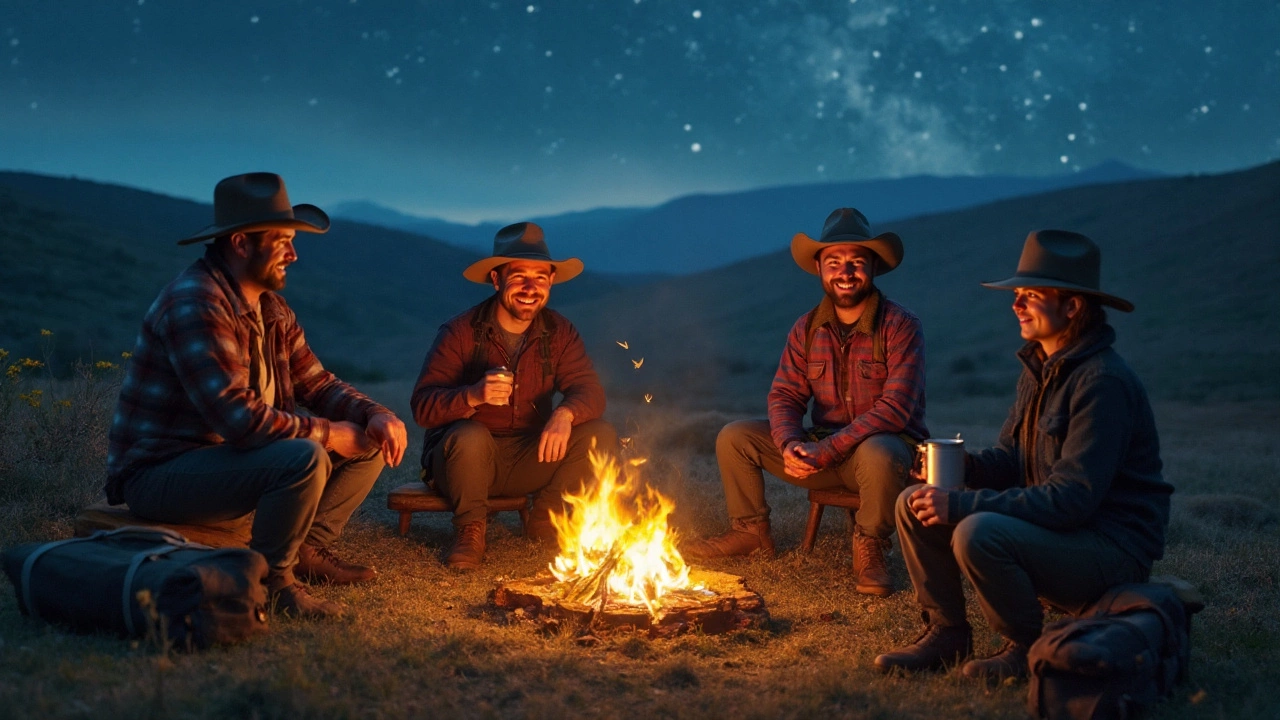Cowboy Camp: Your Guide to Motorhome Adventures and Camping Fun
If you picture a cowboy camp, you probably see a dusty fire pit, a sturdy tent, and a big sky full of stars. Add a motorhome to the mix, and you get a comfortable base that lets you wander farther without sacrificing a good night’s sleep. This page pulls together the most useful advice from our blogs so you can plan a smooth, legal, and enjoyable cowboy camp trip across the UK.
What makes a cowboy camp special?
A cowboy camp isn’t just any campsite. It’s a blend of rugged outdoor living and a touch of Western charm. Think low‑key meals cooked over a campfire, boots on the ground, and a motorhome parked nearby for showers, a proper bed, and a kitchen. Because you’re using a motorhome, many of the hard parts of traditional camping—like staying warm at night or dealing with cramping toilets—are already solved.
What sets it apart is the vibe. You’re still out in nature, still dealing with tides and local bylaws, but you have a home‑on‑wheels that lets you move on a whim. That freedom makes it essential to know the rules for where you can set up, especially on UK beaches or public parks.
Top tips for a smooth cowboy camp trip
1. Check the local camping laws. Not every beach lets you pitch a tent. Our article “Can You Sleep in a Tent on a UK Beach?” breaks down the 2025 bylaws, fines, and safer alternatives like designated camping zones. If you’re eyeing a Scottish coast, the Scottish Outdoor Access Code has its own rules.
2. Choose the right motorhome. If you’re new to motorhome life, read “Top Mistakes to Avoid When Buying an RV.” It helps you decide between a Class A or Class C motorhome and shows which size fits tight campsite spots.
3. Budget wisely. Camping can be cheaper than hotels, but hidden costs pop up. Look at our “Are Campsites Really Cheaper Than Hotels?” guide for a realistic cost comparison. Factor in campsite fees, electricity hookups (see “How Electricity Powers Campsites”), and fuel for your motorhome.
4. Keep it legal in public parks. Planning to pitch in a park? “Can You Pitch a Tent in a Public Park UK” outlines what you can and can’t do, plus quick tips to stay under the radar and avoid fines.
5. Stay clean and respectful. The “Why You Shouldn't Take Seashells from the Beach” piece reminds us that taking natural items harms ecosystems. Follow Leave No Trace principles to keep the area pristine for the next cowboy.
6. Know your bathroom options. Wondering about using the RV toilet while driving? Our “Can You Pee in an RV While Driving?” article gives the safety facts and practical tips so you don’t get caught off‑guard.
7. Plan for emergencies. Wild camping is illegal in most of the UK, as explained in “Wild Camping Laws in the UK.” Stick to approved sites or private land with permission to avoid legal trouble.
Putting these tips together means you can focus on the fun part: waking up to sunrise over a misty moor, cooking a hearty breakfast in your motorhome, and riding out to explore the countryside on foot or with a bike.
Remember, a cowboy camp is all about balance—freedom to roam, comfort of a motorhome, and respect for the land. Use the guides linked above to fill any knowledge gaps, and you’ll be ready for a memorable adventure that feels both wild and well‑planned.
Ready to hit the road? Grab your motorhome, pack your cowboy hat, and start mapping out the next great campsite. The open sky awaits.
Cowboy Camp Explained: Everything You Need to Know About Classic Outdoor Camping
Curious about cowboy camp? Discover what it is, its wild appeal, how to do it right, and pro tips for sleeping under the stars, all in one no-nonsense guide.
